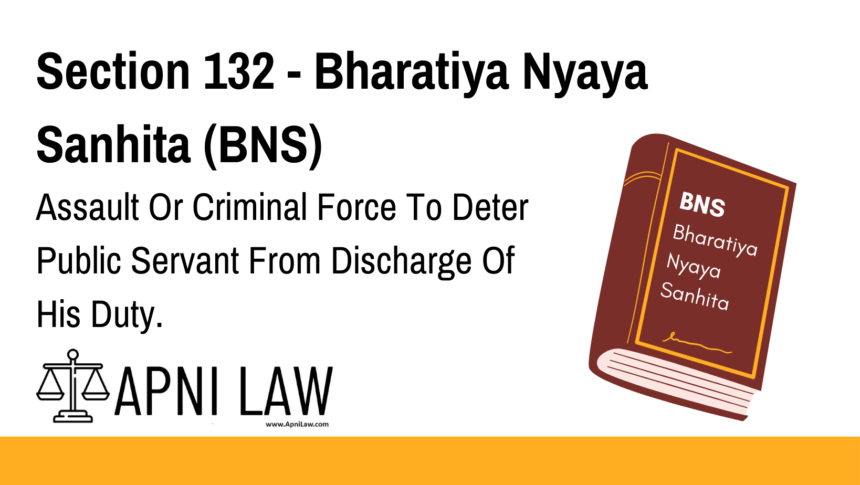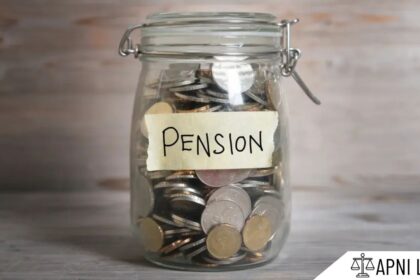Code: Section 132 BNS
Whoever assaults or uses criminal force to any person being a public servant in
the execution of his duty as such public servant, or with intent to prevent or deter that
person from discharging his duty as such public servant, or in consequence of anything
done or attempted to be done by such person in the lawful discharge of his duty as such
public servant, shall be punished with imprisonment of either description for a term which
may extend to two years, or with fine, or with both
Explanation of Section 132 BNS
Section 132 of the Bharatiya Nyaya Sanhita (BNS) penalizes the use of assault or criminal force against public servants to prevent them from performing their lawful duties.
Key Provisions:
- Assault on Public Servants:
- If a person assaults or uses criminal force against a public servant while they are on duty, they can be punished under this section.
- Intent to Prevent a Public Servant’s Duty:
- If someone tries to stop a public servant from performing their official duty, they will be liable for punishment.
- Action Against Public Servants Due to Their Official Work:
- If someone attacks a public servant as a reaction to their official work, this law applies.
- Punishment:
- Imprisonment for up to 2 years, or
- Fine, or
- Both imprisonment and fine.
Illustrations of Section 132 BNS
Example 1: Attacking a Police Officer
A police officer is arresting a criminal as per the law. B, the accused’s friend, pushes the officer to prevent the arrest.

Example 2: Obstructing a Tax Officer
A tax officer is sealing a shop for tax violations. The shop owner slaps the officer to stop the process.

Example 3: Assault on a Judge
A judge delivers an unfavorable verdict. Later, the accused attacks the judge outside the courtroom.

Common Questions and Answers on Section 132 BNS
1. What is the maximum punishment under Section 132 BNS?
The punishment can be imprisonment for up to two years, a fine, or both.
2. Who is considered a “public servant” under this section?
Public servants include:
- Police officers
- Judges
- Government employees
- Tax officers
- Municipal officials
3. Does this law apply if the public servant is off duty?
No. The law applies only when the public servant is performing their official duty.
4. Is self-defense against a public servant allowed under Section 132 BNS?
Yes, but only if the public servant acts unlawfully. Otherwise, using force is punishable.
5. How can a victim (public servant) take legal action under Section 132 BNS?
The victim can:
- File an FIR at the police station.
- Approach the court for legal action.
- Seek protection if they face threats.
Conclusion
Section 132 BNS protects public servants from assault or force while performing their duties. Anyone obstructing or harming a public servant can face legal consequences, including imprisonment or fines.
For more legal insights on BNS and related sections, visit ApniLaw today!










